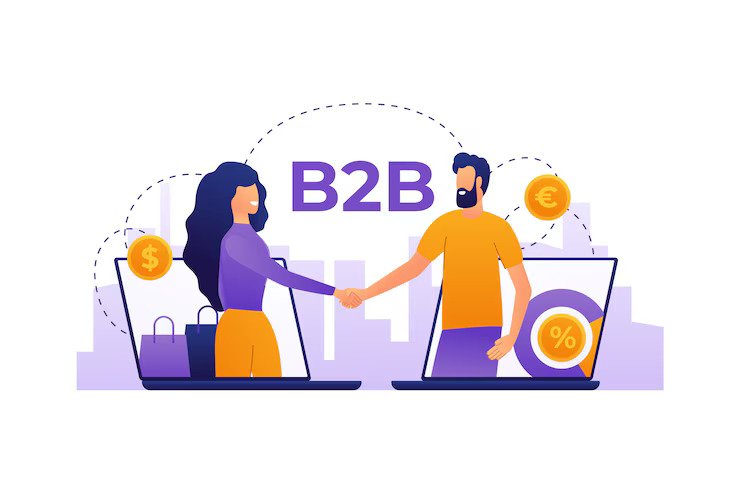B2B Customer Loyalty: Building Stronger Business Bonds
In the B2B world, relationships aren’t just important—they’re everything. While customer loyalty is widely discussed in the consumer space, building and maintaining b2b customer loyalty is equally vital, if not more so. Unlike B2C relationships, which often rely on emotional connections or brand identity, B2B loyalty is built on trust, value, and consistent performance over time.
Businesses that focus on long-term client relationships rather than one-time transactions often outperform their competitors. The cost of acquiring a new B2B client can be five to seven times higher than retaining an existing one. That’s why a strategic approach to cultivating b2b customer loyalty is essential.
What Makes B2B Loyalty Different?
B2B relationships tend to involve longer sales cycles, higher-value contracts, and more stakeholders. These factors create a different kind of loyalty—one rooted in business outcomes, service reliability, and strong interpersonal relationships.
Unlike B2C customers who may switch brands based on trends or price, B2B clients are generally more deliberate. They require confidence that the partnership will help them meet their goals, improve efficiency, or reduce risk. Once trust is built, it tends to result in long-term loyalty—provided that the experience continues to meet or exceed expectations.
Why B2B Customer Loyalty Matters
Here are a few compelling reasons to invest in b2b customer loyalty:
- Increased Lifetime Value: Long-term B2B clients often contribute more revenue over time through renewals, upsells, and referrals.
- Stability: Loyal clients provide predictable income, which can help businesses weather market fluctuations.
- Lower Marketing Costs: Retaining existing customers requires fewer resources than acquiring new ones.
- Advocacy and Referrals: Happy B2B customers are likely to recommend your company within their professional networks, leading to organic growth.
Strategies to Build B2B Customer Loyalty
Establishing b2b customer loyalty takes intentional effort. Here are several proven strategies to strengthen business relationships and earn long-term trust:
1. Deliver Consistent Value
Loyalty starts with value. Ensure your product or service consistently delivers what your client needs—on time and with measurable results. Demonstrate ROI regularly and be proactive in offering solutions that help their business succeed.
2. Understand Their Business Deeply
Go beyond basic client information. Understand your customer’s industry, goals, challenges, and what success looks like for them. The more you tailor your offerings to their unique situation, the more indispensable your company becomes.
3. Communicate Transparently
Strong communication is key to b2b customer loyalty. Maintain open lines of communication and provide regular updates, even when things go wrong. Clients appreciate honesty, and transparency can build trust in difficult situations.
4. Offer Dedicated Support
In B2B, service matters as much as product. Assign account managers who can develop personal relationships and respond to client needs promptly. Quick resolutions and a sense of priority go a long way in building trust.
5. Create Loyalty Programs for B2B Clients
Though often associated with B2C, loyalty programs can be effective in B2B too. These might include discounts for long-term partnerships, exclusive access to features or events, early-bird offers, or co-marketing opportunities. Tailor your loyalty program to reward not just purchases but engagement and advocacy.
6. Solicit Feedback and Act on It
Listening to your clients shows respect and strengthens relationships. Ask for feedback through surveys, check-in calls, or account reviews. More importantly, act on what you hear. When clients see you improving based on their input, their loyalty deepens.
7. Celebrate Milestones
Recognize key anniversaries, successful projects, or contract renewals. A simple thank-you message, a personalized gift, or public acknowledgment can reinforce the relationship and make clients feel valued.
Leveraging Technology for Loyalty
Digital tools can help scale your efforts to build b2b customer loyalty. CRM platforms, for instance, make it easier to track client history, preferences, and behavior. Automated email campaigns and data dashboards can keep clients engaged while helping your team stay proactive.
Some businesses also use B2B-specific loyalty software that integrates with their CRM and sales platforms. These tools allow for point-based systems, partner incentives, and loyalty tiers tailored to enterprise needs.
The Future of B2B Loyalty
B2B buyers are increasingly expecting B2C-style personalization and digital experiences. As such, the future of b2b customer loyalty will likely include more automation, predictive analytics, and tailored content strategies.
AI-driven insights may help businesses anticipate client needs before they’re voiced, while advanced segmentation allows for hyper-personalized offers. Additionally, as values like sustainability and social responsibility grow in importance, companies may find loyalty deepens when those values align.
Conclusion
B2B relationships are built on more than contracts—they’re founded on mutual success and trust. By investing in value-driven service, personalized engagement, and proactive communication, companies can foster strong b2b customer loyalty that lasts for years.
In a world where repeat business is the backbone of success, prioritizing loyalty isn’t just a smart strategy—it’s a necessary one.


